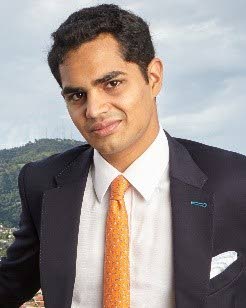Coffee can jolt our start-ups

Kiran Mathur Mohammed
kmmpub@gmail.com
The IMF is projecting zero growth for this year. We need new companies that can scale quickly. It is urgent. Only a few innovative companies can do that.
So let’s assume everyone had access to the digital economy and our whole culture encouraged “early adopters.” What then makes it particularly difficult for someone with an innovative idea to start here, compared to catalytic hubs like Silicon Valley?
People and cash.
Most everyone on Sand Hill Road (the Wall Street of venture capital), including billionaire venture capitalists Peter Thiel and Marc Andreeson, consistently says they invest in people, not products.
For entrepreneurs with a good idea, it can be tough to find others who can fill the gaps needed to create a “minimum viable product” – and turn their idea into a company. Finding talent is particularly difficult when you consider that we have a shortage of software engineers and scientists. Bright young people often feel isolated. So how can we create spaces for serendipitous encounters; and bash people together to talk and create?
Coffee and content.
Talented engineers and hopeful founders are already striking up conversations in Full Bloom Café or Starbucks. Co-working spaces like Regus in Invaders’ Bay or Home in St Clair allow people to bump into each other in environments that enable trust. If the government wants to spark innovation, the best thing to support is the networks already in place. And create a database to bridge all the opportunities.
The universities already have conferences. So do the chambers of commerce. And we can have more events that respect young people – advertising powerful content and international advice, not cheesy branding.
Tech Beach Jamaica has shown that in many cases, leaders in technology and investment will come down for free. We just need to reach out to them at a high level and fulfil their genuine desire to give back (and for a beach holiday). Harvard economist Ricardo Hausmann years ago suggested we create a prime minister’s council for development and invite the best businessmen and investors from around the world to join.
Even if you find the right people, raising cash is difficult. Banks demand collateral that few have access to. Traditional routes like mortgages or loans from close family are not an option for most of us. Apart from a few “angel” investors, few are willing to open their wallets. When they do, it is expensive and involves giving up large ownership stakes.
We remain risk-averse, with something like $2.7 billion in idle excess liquidity as of January 2019, according to the Central Bank. Most local investors will only open their wallets if they see a track record of good companies. But companies need cash, creating a Catch-22 situation.
The only way to break this cycle is to reach out to outside capital through angel networks, development banks, accelerators and international venture capital. With a subsequent track record of solid local companies, local venture capital will natural develop.
This takes us back to the need for coffee and connections. Peter Thiel says that a cold pitch to a major venture capital firm has an “almost zero percent chance of working. Your pitch will be ignored upon receipt.”
We must not underestimate the assets we already have. Perhaps our greatest underutilised asset is our diaspora. There are almost 1.3 million members of the TT diaspora living outside the country. Many are successful and willing to give back – beyond wistfully listening to David Rudder. We can set up a platform to connect us with our diaspora, mapping the connections and matching them with smart locals in need of advice, connections or investment.
Connections are made most quickly where people have shared experiences. Alumni networks, professional associations, even minority “identification” networks should be directly supported and nurtured as little Petri dishes for talent.
Caribbean cultures value community. Early-stage ventures can benefit from this. Friends and family are often willing to risk their investments on risky ventures because they care. This type of altruism is often underrated, as NYU Stern and Colombia professors Samuel Lee and Petra Persson have shown.
Crowdfunding through sites like Kickstarter makes this easier; allowing founders to gauge interest in products and raise small-scale investment.
But any potential venture looking to raise money from its community should also be clear about its social benefits. People are more willing to support those that have a meaningful social impact.
We have the culture, and the talent. Let’s grind those beans and get to work.
Kiran Mathur Mohammed is a social entrepreneur, economist and businessman. He is a former banker, and a graduate of the University of Edinburgh

Comments
"Coffee can jolt our start-ups"